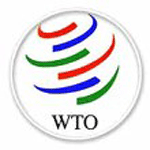Do not Dilute G 33 Proposal: Address Imbalance in Global Agricultural Subsidies Rules, Support Public Stockholding for Guaranteeing Livelihoods and Food Consumption of the Poor at Bali WTO Ministerial
Published on Fri, 2013-11-15 08:33
We, as members of the global civil society, urge the Director-General of the World Trade Organisation, Roberto Azevedo, and heads of member states, to take the issue of food security in developing countries as a matter of serious and immediate concern, and not to render the G-33 proposal on public food stockholding a travesty by asking developing countries to agree to the current text on the peace clause. At the same time, in a volatile global economy, millions of small farmers are engaged in near subsistence and precariously poised food production that provides them essential livelihoods and caters to their own as well as their country’s food requirements. Eradication of global poverty and hungerwould be impossible without addressing these concerns. It is clear that the global economy, with all its growth, has failed to take care of both poor farmers and food consumers across the vast majority of developing countries and LDCs. In sum, they still need support from their own governments, supported by the global community. However, the rules of multilateral trading that have been institutionalized through the WTO makes it impossible for developing country governments to provide this support. When GATT (WTO’s predecessor) was negotiated, all, except 17, developing countries which were not giving any subsidy at that time were barred from increasing subsidies, and were to adhere to a limit of 10% of additional production that could be given out as subsidies. In contrast, developed countries that gave massive subsidies to their agriculture sector were asked to reduce these trade distorting subsidies (OTDS) by only about 20%. Moreover they were allowed to shift most of their subsidies to a “green box” which was marked as non-trade distorting. It is by now well established that both types of subsidies are very much trade distorting and have undercut prices, encouraged dumping of subsidized agricultural products in developing country markets and has threatened global market access for developing country farmers. This twisted legacy of the WTO has resulted in a gross imbalance in global agricultural production, distribution and trading system. This has prevented developing country governments from providing essential support to their numerous small producers, or to poor consumers through direct measures, price supported public food stockholdingor other processes, even if financially they are now able to do so. For example, India’s recently passed Food Security Act, which aims to provide minimum food entitlements to the poor 67% of the population, will need an allotment of US$20 billion and will conflict directly with WTO’s set limits. The WTO mandated obligations will constrain India from fully implementing its Food Security Act. This peculiar juxtaposition in WTO’s agricultural trade rules has led the G-33 group of developing countries to table a proposal on food security at the WTO that argues that public food programmes for supporting livelihoods of small farmers and food consumption of the poor should be considered part of the “green box” and allowed without limits by changing the existing Agreement on Agriculture (AoA). Under the WTO rules,a subsidy through price support shall be calculated using the gap between the fixed external reference price and the applied administered price. The reference price was fixed at average f.o.b. (free on board- price from farm gate till its delivery on the ship) price notified by each country for 1986 – 1988. Since the “fixed external reference price” is much lower than the minimum support price levels (MSP), the subsidy tends to get much inflated in comparison to reality. In addition, the entire production “eligible” to receive the subsidy and not the “actual” production is to be the basis for subsidy calculation, thus inflating subsidies further. Obviously for large developing countries the total subsidy calculated under broad price support programmes tends to significantly overstate the actual financial support provided to farmers. On the other hand,the total domestic support of the USA grew from US$61 billion to US$130 billion between 1995 and 2010.The EU’s domestic support, which went down from 90 billion euro in 1995 to 75 billion euro in 2002, bloated again to 90 billion in 2006 and 79 billion in 2009. A broader measure of farm protection, known as total support estimate, shows the OECD countries’ agriculture subsidies soared from US$350 billion in 1996 to US$406 billion in 2011. Unfortunately the G-33 proposal has found stiff opposition from the developed countries, notably the USA and the EU.This is despite the fact that in 2010, the poor in India received on average of only 58 kg per person, 3.1 times less than the 182 kg per person of the 80 million beneficiaries of cereals food aid in the USA. This is also 4.2 times less than the 241 kg for each of the 46.6 million beneficiaries of the Supplemental Nutrition Assistance Program (SNAP) or food stamp programme in the USA.
» |
SUSCRIBE TO OUR NEWSLETTER



